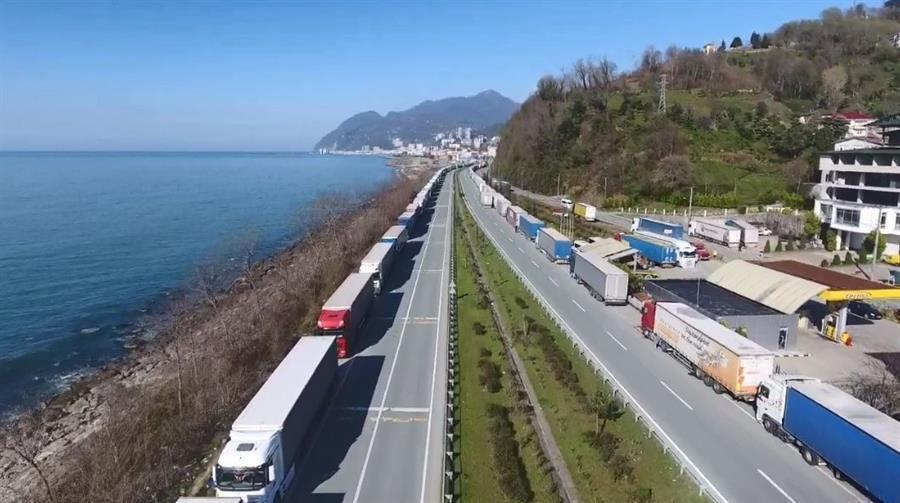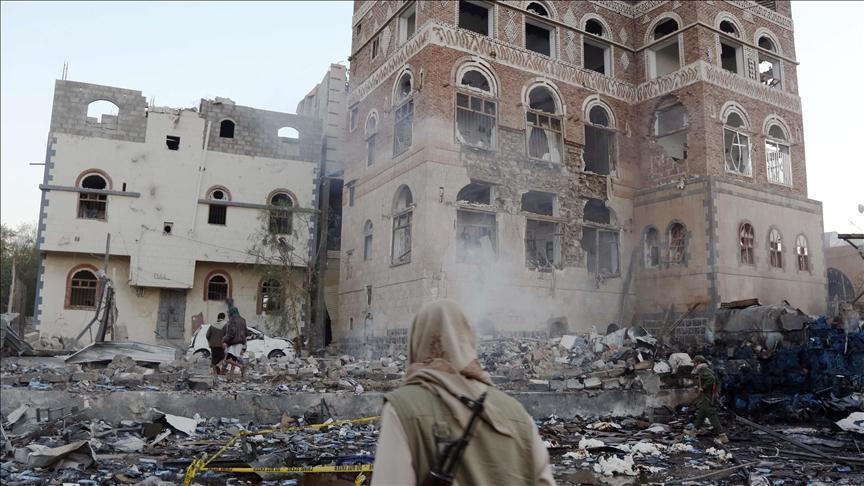Hundreds of trucks divert route amid Ukraine war
ARTVİN

Hundreds of international and local freight trucks are diverting their route to avoid conflict in Ukraine to use a border crossing on Turkey’s border with Georgia in order to deliver goods to their destinations via the Caucasus, causing
kilometers-long lines on the highways.
The Sarp border crossing in the northeastern province of Artvin has been extremely busy lately because of the war in Ukraine. International freight companies are directing their trucks to the border crossing, local firms also prefer delivering goods via this safer route.
The result is up to a 25-kilometers long line of trucks on the highway in this province on the Black Sea province, stretching toward the Sarp border crossing.
Drivers of some 1,200 trucks have to wait for days to clear the border. Trucks block one line of the highway
completely, occasionally causing traffic congestion on the highway.
This heavy traffic and the long line of trucks on the road cause four or five days of delay in deliveries of the goods, said Atıf Kesim, head of the Chamber of Commerce and Industry in the Arhavi district in Artvin.
“I traveled all the way from Arhavi to Sarp. The line of trucks is unbelievable. If it goes like this, we will have to cancel the existing freight deals and export agreements. Logistics firms are facing serious problems so are truck drivers,” Kesim furthered.
Impact on exporters
The war in Ukraine causes hardship not only to freight companies but also fruit and vegetable growers in Turkey, especially farmers in the country’s Mediterranean region, whose main export market is Russia.
Since their produce cannot be delivered to Russia, growers are increasingly turning to the local market and European markets.
“It now takes up to 18 days for a truck to deliver fruits and vegetables to Russia, whereas it took only five days before.
This means that produce’s shelf-life expires on the way,” said Agil Lankon, who trades goods between Turkey, Azerbaijan and Russia.
Food exporters also complain about the rising transport costs.
“There are uncertainties regarding collecting money from the Russian buyers; we are sending our produce only to European countries,” said Mehmet Karadaş, another grower in Antalya.
Data from the Western Mediterranean Exporters’ Union (BAİB) show that exports from the region to Russia and Ukraine declined by 48 percent and more than 65 percent, respectively, between Jan. 24 and April 6.
Exporters also did not receive some $80 million in outstanding collectibles their Russian customers own them for the goods they sent to this country before the war began.
Ümit Mirza Çavuşoğlu, head of BAİB, also stressed that the main problem exporters face is delivering goods to those two markets. “Exporters send their products via Georgia and Armenia, but this is not enough,” he said.
















